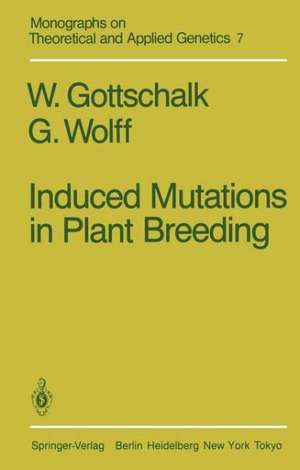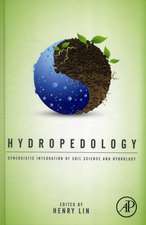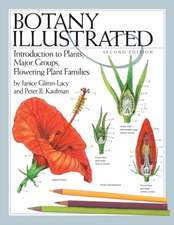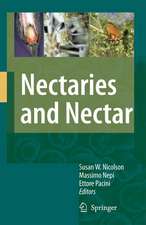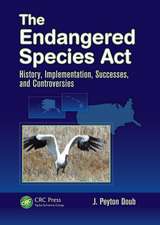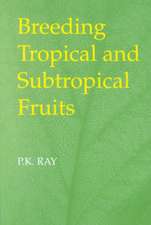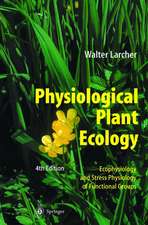Induced Mutations in Plant Breeding: Monographs on Theoretical and Applied Genetics, cartea 7
Autor W. Gottschalk, G. Wolffen Limba Engleză Paperback – 14 dec 2011
Din seria Monographs on Theoretical and Applied Genetics
- 20%
 Preț: 559.63 lei
Preț: 559.63 lei - 18%
 Preț: 985.38 lei
Preț: 985.38 lei -
 Preț: 383.71 lei
Preț: 383.71 lei - 20%
 Preț: 555.35 lei
Preț: 555.35 lei - 15%
 Preț: 641.38 lei
Preț: 641.38 lei - 15%
 Preț: 644.30 lei
Preț: 644.30 lei - 15%
 Preț: 643.65 lei
Preț: 643.65 lei - 15%
 Preț: 640.06 lei
Preț: 640.06 lei - 15%
 Preț: 649.71 lei
Preț: 649.71 lei - 15%
 Preț: 639.41 lei
Preț: 639.41 lei -
 Preț: 387.20 lei
Preț: 387.20 lei - 15%
 Preț: 642.68 lei
Preț: 642.68 lei - 15%
 Preț: 639.25 lei
Preț: 639.25 lei - 15%
 Preț: 637.59 lei
Preț: 637.59 lei - 15%
 Preț: 636.30 lei
Preț: 636.30 lei - 15%
 Preț: 644.82 lei
Preț: 644.82 lei - 15%
 Preț: 648.42 lei
Preț: 648.42 lei - 15%
 Preț: 643.16 lei
Preț: 643.16 lei - 15%
 Preț: 639.08 lei
Preț: 639.08 lei
Preț: 558.52 lei
Preț vechi: 698.15 lei
-20% Nou
Puncte Express: 838
Preț estimativ în valută:
106.89€ • 111.18$ • 88.24£
106.89€ • 111.18$ • 88.24£
Carte tipărită la comandă
Livrare economică 11-17 aprilie
Preluare comenzi: 021 569.72.76
Specificații
ISBN-13: 9783642819995
ISBN-10: 3642819990
Pagini: 256
Ilustrații: X, 240 p.
Dimensiuni: 156 x 244 x 13 mm
Ediția:Softcover reprint of the original 1st ed. 1983
Editura: Springer Berlin, Heidelberg
Colecția Springer
Seria Monographs on Theoretical and Applied Genetics
Locul publicării:Berlin, Heidelberg, Germany
ISBN-10: 3642819990
Pagini: 256
Ilustrații: X, 240 p.
Dimensiuni: 156 x 244 x 13 mm
Ediția:Softcover reprint of the original 1st ed. 1983
Editura: Springer Berlin, Heidelberg
Colecția Springer
Seria Monographs on Theoretical and Applied Genetics
Locul publicării:Berlin, Heidelberg, Germany
Public țintă
ResearchCuprins
1 Introduction.- 2 Methods for Inducing Mutations.- 2.1 Mutagenic Agents and Related Problems..- 2.2 The Chimerical Structure of the M1 Plants.- 3 The Selection Value of Mutant Genes.- 4 The Seed Production of Mutants and the Alteration of Quantitative Characters.- 4.1 The Alteration of Quantitative Characters.- 4.2 Mutants with Increased Seed Yield.- 4.3 Released or Approved Mutant Varieties.- 5 The Utilization of Mutants in Crossbreeding.- 5.1 The Incorporation of Mutant Genes into the Genomes of Varieties or Strains.- 5.2 The Joint Action of Mutant Genes.- 6 The Alteration of the Shoot System by Means of Mutations.- 6.1 Mutants with Reduced Plant Height: Erectoides Types, Semidwarfs, Dwarfs.- 6.2 Mutants with Increased Plant Height.- 6.3 Mutants with Altered Stem Structure.- 7 Alterations of Flower Shape, Color and Function.- 7.1 Flower Shapes and Flower Colors in Ornamentals.- 7.2 Inflorescences.- 7.3 Genetic Male Sterility.- 8 Leaf Mutants of Agronomic Interest.- 9 Mutations Affecting the Root System.- 10 The Alteration of Flowering and Ripening Times.- 10.1 Earliness.- 10.2 Lateness.- 10.3 Changes of the Photoperiodic Reaction.- 11 Mutations in Vegetatively Propagated Crops and Ornamentals.- 12 Heterosis.- 13 Disease Resistance.- 13.1 Resistance Against Fungi, Bacteria, and Viruses.- 13.2 Resistance Against Animal Pathogens.- 13.3 Herbicide Tolerance.- 14 Drought Resistance, Heat Tolerance, Winterhardiness.- 15 Shattering and Shedding Resistance.- 16 The Pleiotropic Gene Action as a Negative Factor in Mutation Breeding.- 16.1 The Alteration of Pleiotropic Patterns Under the Influence of Changed Genotypic Background or Environment.- 16.2 Mutations of Closely Linked Genes.- 17 The Penetrante Behavior of Mutant Genes as a Negative Factor.- 18 The Adaptability of Mutants to Altered Environmental Conditions.- 18.1 The Reaction of Mutants to Different Natural Environments.- 18.2 The Reaction of Mutants Under Controlled Phytotron Conditions.- 19 The Alteration of Morphological and Physiological Seed Characters.- 19.1 Seed Size.- 19.2 Seed Shape.- 19.3 Seed Color.- 19.4 Physiological Seed Characters.- 20 The Alteration of Seed Storage Substances.- 20.1 Seed Proteins.- 20.2 Seed Carbohydrates.- 20.3 Seed Lipids.- 21 Other Plant Substances.- 22 The Nutritional Value of Mutants.- 22.1 Maize Mutants.- 22.2 Barley Mutants.- 22.3 Sorghum Genotypes.- 22.4 Pea Mutants.- 23 General Aspects of Mutation Breeding with Regard to the Improvement of Seed Storage Substances.- References.
